Making movies. Enjoying movies. Remembering movies.
THE SCREENING ROOM
Related Articles:
More Articles by Rick
Mitchell
|
A Remembrance By Rick Mitchell
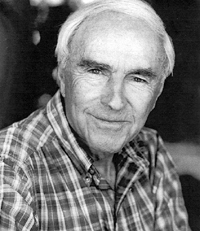
---director Richard Fleischer in 1953 on his reaction to CinemaScope*
Fleischer took a low-key understated approach to the performances in his films. While this was fairly standard in Hollywood films in the Forties, when he started out, it was something of a house style at RKO Radio Pictures, where he began his career, as can be noted in the films of his contemporaries at the studio, Edward Dmytryk, Nicholas Ray, Mark Robson, and Robert Wise. Even where the role called for a certain flamboyance, such as Marie Windsor's in "The Narrow Margin" (RKO; 1952) or Orson Welles' in "Compulsion" (20th Century-Fox; 1959), there is a restraint that enhances the character's believability rather than making it an exercise in scenery chewing. At the same time, he allows or encourages an underlying and appealing sense of humor in many of the actors' approaches to their roles, a lightness that makes the most outrageous of plot situations acceptable. This is best illustrated in the blasť insouciance of the scientists and military men in "Fantastic Voyage" (20th Century-Fox; 1966).
This may also be the reason why Fleischer's more fantastic and adventurous films work as well as they do. Like Robert Wise, he took such projects seriously, and not only has his "20,000 Leagues Under The Sea" (Disney; 1954) and "The Vikings" (United Artists; 1958) never been equaled or surpassed, to date no one seems to have tried to do so. In retrospective, what has long been considered his best known big budget disaster, "Doctor Dolittle" (20th Century-Fox; 1967), comes off as more a victim of bad timing than an unwatcheable film. Even "The Big Gamble" (20th Century-Fox; 1960), the last three-quarters of which Fleischer claims were written by producer Darryl F. Zanuck, holds the attention despite the feeling that it would have worked better set in the Twenties or Thirties.
Though he came to the attention of RKO through his off-Broadway stage work, and did shorts and documentaries for them in New York before being brought out to Hollywood, he was the son of legendary animation pioneer Max Fleischer, and had a strong understanding of the importance of a film's visual side that he particularly brought not only to his wide screen movies, but to one of the surprises in the 2003 3-D Expo, "Arena" (MGM; 1953). Fleischer's wide screen films, like those of Robert Wise and David Lean, are textbook examples of how the format should be used. While the compositions and staging of "20,000 Leagues" may be attributed to Disney and his storyboard artists, the continuity of his approach in later films, including "intimate" dramas like "Compulsion" and "Crack In The Mirror" (20th Century-Fox; 1960), done in collaboration with different production designers and cinematographers, suggest these images came from Fleischer.
Although there are contemporary "pretenders" to the action-adventure genre that directors like Fleischer, Don Siegel, Phil Karlson, among others, seem to do so effortlessly, none of them, especially not Peter Jackson, have come close to even their lesser efforts. Those directors came from a different time and a different, more innocent sensibility. Fleischer was the last of a noble breed and it's doubtful if his, or their, like will ever be seen again.
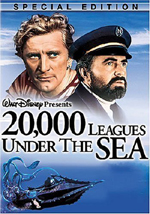 |
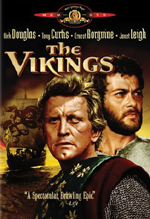 |
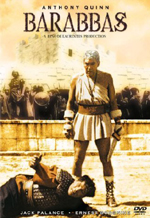 |
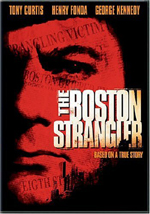 |
 |
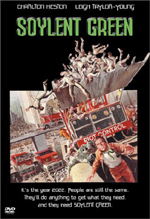 |
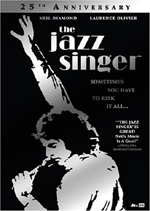 |
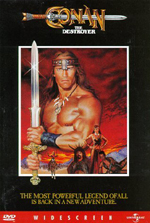 |
Rick Mitchell is a film editor, film director, and film historian. He lives in Los Angeles.
© 2006 Rick Mitchell. All rights reserved.
IMAGES: © Disney; MGM; Sony Pictures; 20th Century Fox; Anchor Bay; Universal Pictures. All rights reserved.
* Fleischer interview quote: Coate, Michael & William Kallay. "Widescreen: 50 Years Of Innovation And Showmanship." Widescreen Review's The Ultimate Widescreen DVD Movie Guide, 2004 Edition.
